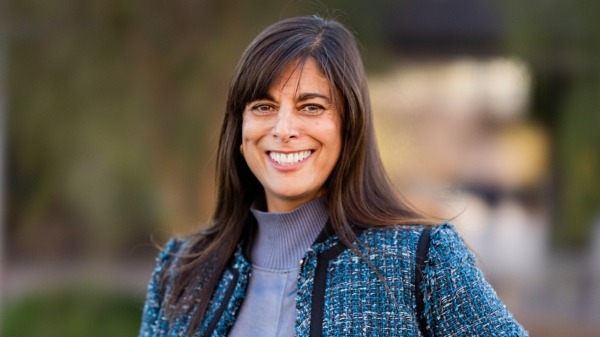5 fascinating facts about Mom
Research at ASU has revealed new insights about the important role of being a mother

1. Mothers also need mothering
Motherhood brings great joys but also great demands, which can take a toll on a mother’s psychological well-being. ASU research reveals two crucial factors that promote a healthy psychological state in mothers: unconditional acceptance by friends and authenticity in relationships.
2. Mothers carry the cells of their fetuses even after giving birth
Research from the Biodesign Institute shows that during pregnancy, cells from the fetus often migrate through the placenta. The cells then take up residence in many areas of the mother’s body, where their influence may benefit or undermine maternal health. This means mom is a chimera, and the more children she has, the more “alien” cells she has in her body.
3. Pregnant mothers grow a disposable super organ
The placenta is a remarkable organ unique to pregnant mothers that protects and nurtures an unborn baby and is expelled after birth. It holds many mysteries that scientists don’t understand, but ASU Biodesign researcher Cheryl Nickerson is helping to change that. Her team has developed a pioneering 3-D cell culture model to mimic and study the natural behavior of placental cells. This type of model could lead to better research on placentas and help protect both mothers and babies.
4. Many mothers don't talk about childbirth — but they should
Giving birth is a hugely significant event in many women’s lives, but it’s one that our society as a whole doesn’t often talk about. Because of this, many women are unprepared for the messy realities and lasting effects of giving birth. ASU associate professor and artist Forrest Solis is working to combat this stigma with an art and oral history project titled “Creative Push,” which aims to record and disseminate women’s birth stories without judgment.
5. Mothers make different breast milk for daughters and sons
The contents of breast milk differ depending on the gender of the baby, and the distinction of “girl milk” vs. “boy milk” is likely determined in utero, according to research by ASU anthropologist Katie Hinde. This has important implications for understanding breast-milk production, improving commercial infant formula and for milk-sharing programs.
More Science and technology

The science behind chronic stress
Stress comes in many shapes and sizes. There’s the everyday stress of preparing for a final exam or being stuck in traffic. And the more significant stress of losing a friend, family member,…

ASU planetary scientist to be inducted into the National Academy of Sciences
The National Academy of Sciences is inducting School of Earth and Space Exploration Director Meenakshi Wadhwa into the 2023 class of new members for her pioneering work in planetary sciences and…

Unlocking the potential of AI for homeland security
“Can we do what we're doing now cheaper, more efficiently, more effectively?” Adam Cox, director in the Office of Strategy and Policy at the Department of Homeland Security Science and Technology…